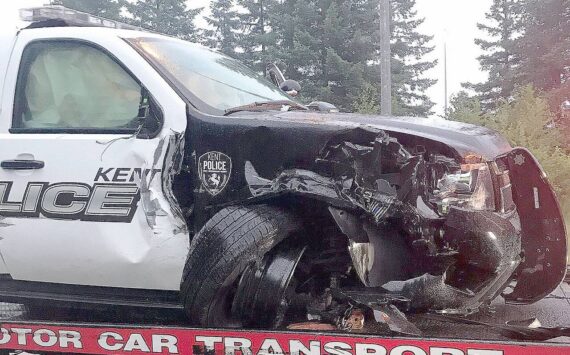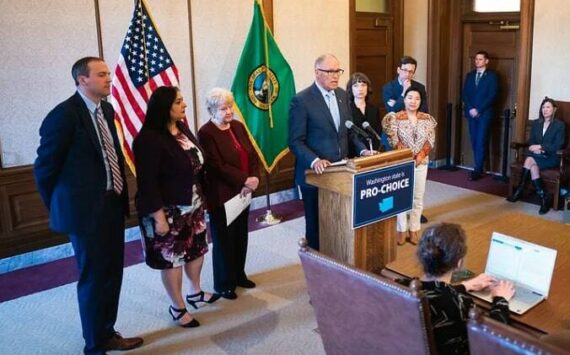OLYMPIA — Negotiations on new state rules for drilling wells began this week, ending the longest political stand-off in the Legislature this year.
Representatives of the Democrat-controlled House, Republican-led Senate and governor’s office sat down Wednesday for their first face-to-face talks on a response to the Supreme Court ruling effectively ending the ability of homeowners to drill a well without a permit.
The Hirst decision issued last fall put the onus on counties to ensure the quality and quantity of water for existing wells and streams is not undermined by the drilling of new wells.
As a result of the ruling, counties can no longer rely on the state Department of Ecology to determine whether there’s enough water for a new well. Each county must come up with its own system for predicting the impact on water flowing to nearby streams or available to existing wells.
Environmentalists and tribal leaders embraced the decision as a victory for protecting water resources. Owners of property in rural areas contend they cannot develop their land because they cannot get water.
In Olympia, Republican senators are pushing legislation to enable landowners to obtain permission to drill wells in much the same manner as before. And counties would again be able to rely on the ecology department for information on the availability of water.
Under Senate Bill 5239, as a condition of getting a water rights permit, a property owner might be required to offset impacts to fish or aquatic resources. The nature of the mitigation is not detailed and might not necessarily require them to identify a source of water to replace what they use.
Democratic representatives and Gov. Jay Inslee are proposing a path that also would allow property owners to obtain a permit to drill. A new fee would be collected and used to cover the cost of mitigation. Chiefly, this would entail finding a new source of water to offset what is extracted. While it is best to have the replacement source nearby, it is not a prerequisite, lawmakers said.
The fundamental goal of House Bill 2226 is protecting existing water rights, said Rep. Derek Stanford, D-Bothell, one of the negotiators. In areas where water obtained from a new well could impair someone’s water rights or the flow of water to nearby streams there will be a need for mitigation, he said. Figuring out an appropriate fee and a fair process for mitigation is a central point of conversation, he said.
On Wednesday, the parties met for 90 minutes in a basement conference room of the Senate GOP office building, poring through the different approaches.
“I’m disappointed it took so long to get to this point but I’m glad we got there,” said Sen. Judy Warnick, R-Moses Lake, chairwoman of the Senate Agriculture, Water, Trade and Economic Development Committee. “We know kind of where the battle lines are more specifically.”
“The most important takeaway is the commitment to have a bill. I have heard that maybe we don’t need a bill,” she said. “I got a commitment at the end of this meeting we will have a bill.”
Also taking part Wednesday were Sen. Jim Honeyford, R-Sunnyside, Stanford, Rep. Larry Springer, D-Kirkland, Secretary of Ecology Maia Bellon and Rob Duff, the governor’s senior policy adviser on natural resources.
“I was equally encouraged,” Springer said. “It was our first opportunity to really identify where the pinch points are. The struggle will be how you determine what mitigation is appropriate. The day of the exempt well with no permitting requirements are over.”
Stanford said the group “covered a lot of ground. Clearly there is work remaining to be done.”
This story originally appeared in the Everett Herald.







